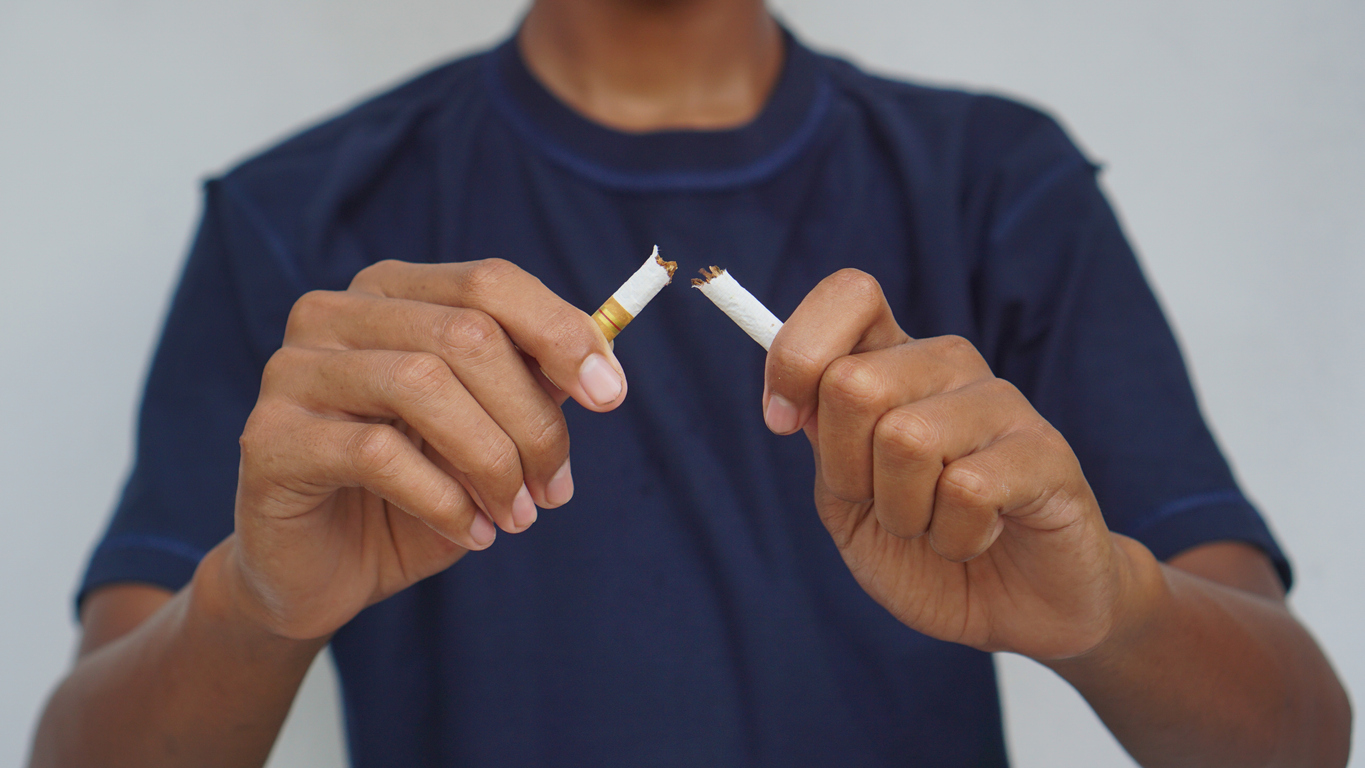Tobacco Cessation at LSU LCMC Health Cancer Center

If you had the opportunity to lower your chances of getting cancer, would you take it? While most people would, over 28 million Americans actively use a known cause of cancer – tobacco.
Tobacco is the number one preventable cause of cancer and cancer death, which is due to its 70-plus cancer-causing chemicals (called carcinogens). Tobacco use, including smoking and smokeless tobacco products, is more commonly associated with lung cancer, but it can also cause cancer of the kidney, cervix, bladder, esophagus, colon, pancreas, stomach, and other organs.
When it comes to smoking, this action doesn’t just put your life at risk – it endangers those around you. Secondhand smoke causes roughly 7,300 lung cancer deaths among nonsmokers each year.
If you have cancer, tobacco use is associated with poorer health, a greater need for healthcare services, and more healthcare-related expenses. It can make it more likely for cancer to come back or for you to develop other health problems.
The risks of tobacco use are impossible to ignore. Yet, many Americans, especially those living in the South, continue to smoke. Louisiana – as well as nearby states like Mississippi, Arkansas, Oklahoma, and Alabama – are considered “Tobacco Nation” states, meaning the average smoking rate is more than 40% higher compared to other states.
LSU LCMC Health Cancer Center and its community partners are committed to spreading awareness about the risks of tobacco and supporting those who want to quit.
How Does Tobacco Use Affect Cancer Treatment?
Tobacco is dangerous for anyone, but it poses a particular threat to those diagnosed
with cancer. As your body fights cancer and recovers from the side effects of treatment,
you need all the strength you can get. Tobacco keeps your body from being at its healthiest,
making it more likely for you to encounter problems during treatment and recovery.
Among patients with cancer and cancer survivors, tobacco use increases the likelihood
of:
- Other tobacco-related cancers
- Poor treatment response and treatment-related toxicity
- Cancer recurrence
- Death
Tobacco use can also lead to other health conditions (called comorbidities), such as heart disease, lung disease, diabetes, chronic obstructive pulmonary disease (COPD), and problems with the immune system. All of these put an increased strain on your body during an already challenging time.
The good news is that stopping tobacco use (called tobacco cessation) comes with significant benefits – some of which occur in the first year after quitting. Not smoking can improve your overall healthcare-related outcomes, lower your chances of comorbidities, and reduce your chances of cancer-related death.
Tobacco Use Screening and Community Outreach
At LSU LCMC Health Cancer Center, we’re committed to identifying current tobacco users and getting them the support they need. This begins with one of the most important relationships in healthcare – the one between patients and providers.
Using evidence-based screening, all patients of LSU LCMC Health Cancer Center and the LCMC Health System are asked about tobacco use. Tobacco users are also asked about their readiness to quit.
These conversations offer opportunities to educate patients about the risks of tobacco use and provide support to those who want to quit.
LSU LCMC Health Cancer Center and its community partners also engage in extensive community outreach to reach those who aren’t currently enrolled in the LCMC Health System. From social media to health fairs to text message campaigns, education and resources are made widely available to encourage community members to quit smoking and direct them toward lifesaving resources.
Convenient and Free Tobacco Cessation Resources
While many people want to stop using tobacco, some don’t have the support needed to
do so successfully. With a range of community partnerships, LSU LCMC Health Cancer
Center ensures everyone – no matter their ability to pay – has access to convenient
and evidence-based tobacco cessation resources.
The Louisiana Tobacco Control Initiative (TCI), housed within the LSU Health System, provides low-cost or free services, including:
- Behavioral counseling
- Medication
- Referrals to other tobacco cessation services
The TCI also coordinates and oversees training and technical aid for clinics and health systems who wish to develop tobacco-cessation services for their patients and communities. With this approach, resources can be developed and catered to the unique needs of each community.
The Louisiana Campaign for Tobacco-Free Living (TFL) also promotes tobacco cessation efforts using research about cancer prevention and treatment. In addition, the TFL engages in tobacco control policy efforts centered around tobacco prevention.
Finally, the Louisiana Department of Health's Tobacco-Free Louisiana Coalition joins together community organizations to create tobacco-free environments across Louisiana.
Ongoing Support Through LSU LCMC Health Cancer Center
Quitting smoking and other forms of tobacco is not a one-time occurrence. Those who quit must make the choice to put their health first every day. Tobacco use is considered a chronic illness, meaning those who quit often need ongoing support and resources to remain tobacco free.
LSU LCMC Health Cancer Center is dedicated to getting our patients the support they need to live a tobacco-free life – before, during, and after cancer treatment. After all, a tobacco-free life is one step closer to a cancer-free life.
Do you have questions about tobacco cessation? Talk to your LSU LCMC Health Cancer Center healthcare provider or call our Certified Tobacco Treatment Specialist Lucretia Young at 504-554-1780.
You can also call the Louisiana Tobacco Quitline at 1-800-QUIT-NOW.
